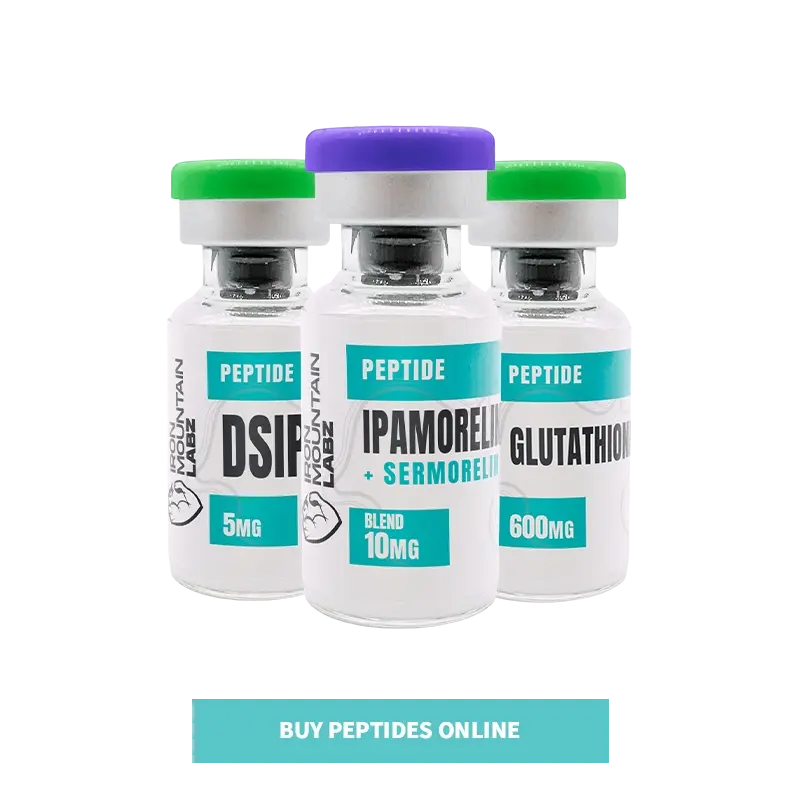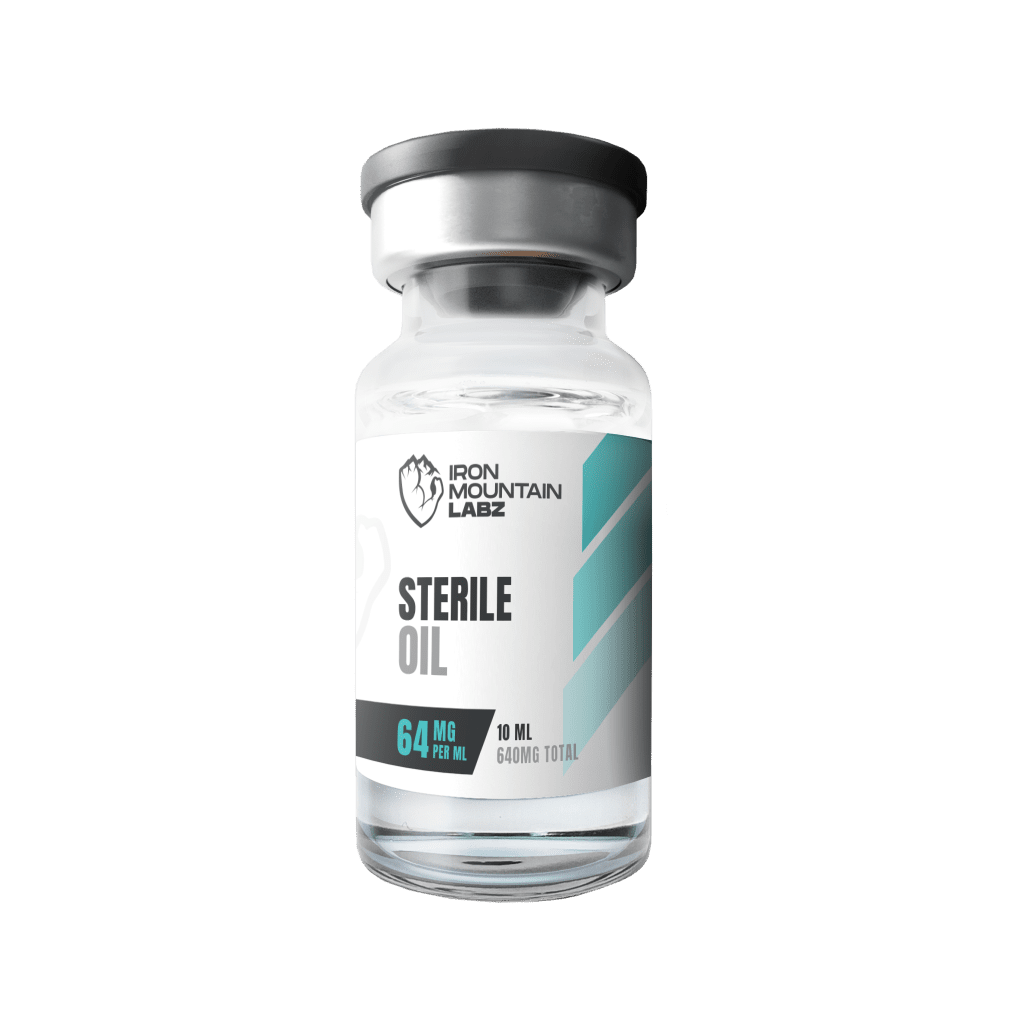
Peptides are biomolecules that can lose their strength and structural integrity when stored under inappropriate storage conditions. If you’re unfamiliar with their role in research, here’s a deeper look at what are peptides. You can get these compounds in different forms, including powder, liquid, and nasal sprays.
When it comes to how these products are stored, it can make a big difference in their stability and shelf life.
In this blog, you’ll get to know how these different forms of peptides are stored for your research. But why is their proper storage important in the first place? Let’s find out!
Peptides are susceptible to different degradation pathways if they aren’t stored well. The strength of these compounds can be affected by factors like environmental conditions, sequence length, and composition of the compound. When these factors are ignored, the peptide may no longer remain effective in your research.
So, the proper storage of these products is important because doing so can keep the peptide in good condition, which ultimately gets you accurate results.
The recommended tips on how to handle and store peptides properly in different forms include the following.
Lyophilized peptides are freeze-dried and generally more stable than liquid forms. Many researchers buy them as single peptide vials, which require proper care during storage. Still, they need proper care.
To store peptides for a short duration, you may need to keep vials in a cool and dry place. A standard refrigerator (2–8°C) is suitable for storage up to several weeks.
For an extended period (several months or more), use a freezer set to -20°C or lower.
The vials must be tightly closed and stored in a clean, dry environment.
When a peptide is mixed with a liquid (solvent), it becomes more sensitive to breakdown. For accuracy, it’s important to know exactly how to reconstitute peptides before storage.
You can use research-grade sterile or bacteriostatic water based on your protocol.
Reconstituted peptides can be stored in the refrigerator. It can be used in research for a few days to two weeks.
If you plan to store the peptide for a longer time, split it into small portions (aliquots) and freeze them at -20°C or lower.
Some peptides are formulated for nasal delivery systems in a lab setting. These nasal spray peptides require special care during storage to maintain potency.
Storage Instructions:

The following factors can influence the stability of research peptides.
Ultraviolet rays can degrade peptides because they contain amino acids like tryptophan or phenylalanine residues. These amino acids can be damaged by light and oxygen, and the peptide eventually loses its potency.
Extremely high and low temperatures can disrupt the structure of peptides, which is why many labs compare SARMs vs peptides for stability and performance in research. The right way to store them is to place these compounds in a cool and stable environment to avoid both extremes.
Extremely acidic environments may break down peptides, which can change their structure and lead to inaccurate research results.
Enzymes such as proteases, which may be present in the environment, can break down peptides. This can affect the potency of peptides and may become ineffective over time.
Oxidizable groups in peptides, such as sulfhydryl groups, can be easily damaged when exposed to oxidizing substances. This may also affect the structure and function of peptides.
Many online brands feature the most popular research peptides in their stores, but you need to choose the one with a good reputation in the industry. Iron Mountain Labz is one such retailer that provides verified research-based peptides that are sealed and remain active and uncontaminated when used in research.
We’ve different types of peptides in our portfolio, such as peptide kits, single vials, and nasal sprays for research purposes. You can get the peptide type that suits your research purpose and needs.
When you carry out the right storage and handling practices for your research peptides, you can maintain their potency over time. Since peptides are offered in different forms such as powder, liquid, and nasal spray, each type has certain conditions to preserve its stability. Some common factors like light, temperature, pH, and oxidation can affect the strength and effectiveness of these compounds.
The right way is to go for a reputable brand like Iron Mountain Labz, which offers a wide selection of research peptides to support accurate results in studies.
The visual appearance of peptides can give you a sign of degradation. You may notice discoloration, clumping, or the presence of substances in reconstituted peptides (Liquid). These are some of the indications that the peptide may not be effective in your research. (r)
Yes, peptides can lose their strength or break down if exposed to heat, light, moisture, or air.
No, both need refrigeration, and nasal spray peptides should be stored upright in leak-proof containers. They may also require gentle shaking before use, but handling should still be careful to avoid damaging the peptide.
Peptides are generally unstable at room temperature and should not be stored there for extended periods. Lyophilized peptides may remain stable for a few hours to a day at room temperature, but prolonged exposure can lead to degradation. Reconstituted (liquid) peptides are even more sensitive and should be kept cold to preserve their stability.
The standard method for reconstituting peptides is by using solvents like bacteriostatic water. This is because bacteriostatic water can maintain sterility over time and reduce the risk of contamination.
Yes, most peptides need to be refrigerated to maintain stability. Lyophilized (powder) peptides are typically stored at −20 °C. Reconstituted (liquid) peptides should be kept at −20 °C or −80 °C and protected from repeated freeze-thaw cycles to prevent degradation.
Before reconstitution, peptides in lyophilized (powder) form should be stored in tightly sealed containers at −20 °C or colder to maintain stability. Proper storage is important because it enables the peptides to remain stable and retain their activity for research purposes.
Peptides in powder form can last for months to years. They should be kept in tightly closed containers at −20 °C to −80 °C. The absence of water helps prevent the peptide from breaking down and stops bacterial growth. The exact shelf life can vary depending on the peptide, so it’s best to follow the manufacturer’s storage instructions.
Introduction Have you been consistent with your diet and exercise, where you count your calories
Are you here in search of your ideal injectable SARMs dosage? SARMs can focus on

If you experience injection pain, consider purchasing sterile oil. It helps ease discomfort by thinning the compound, making injections smoother.